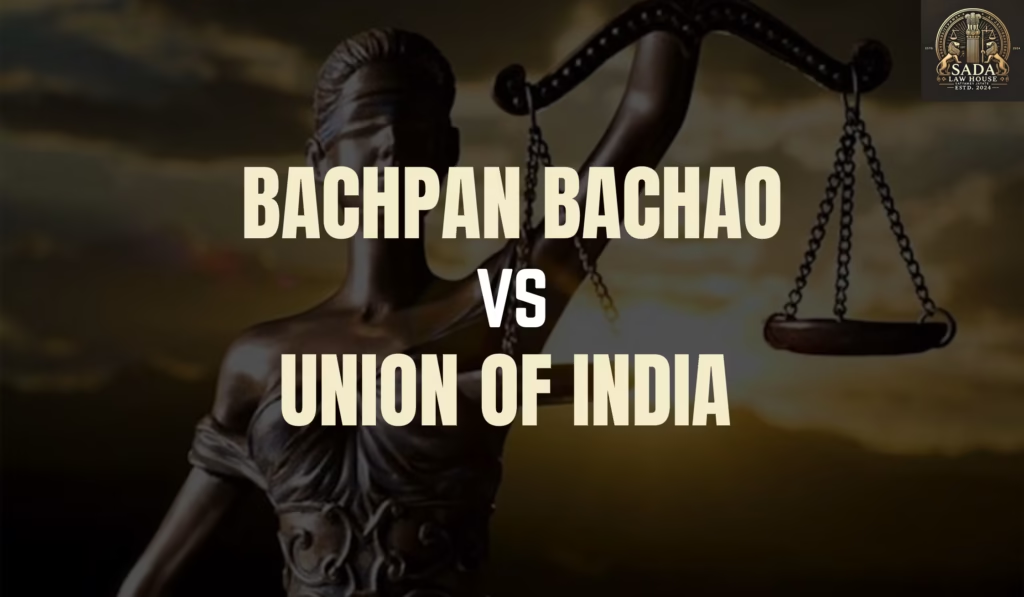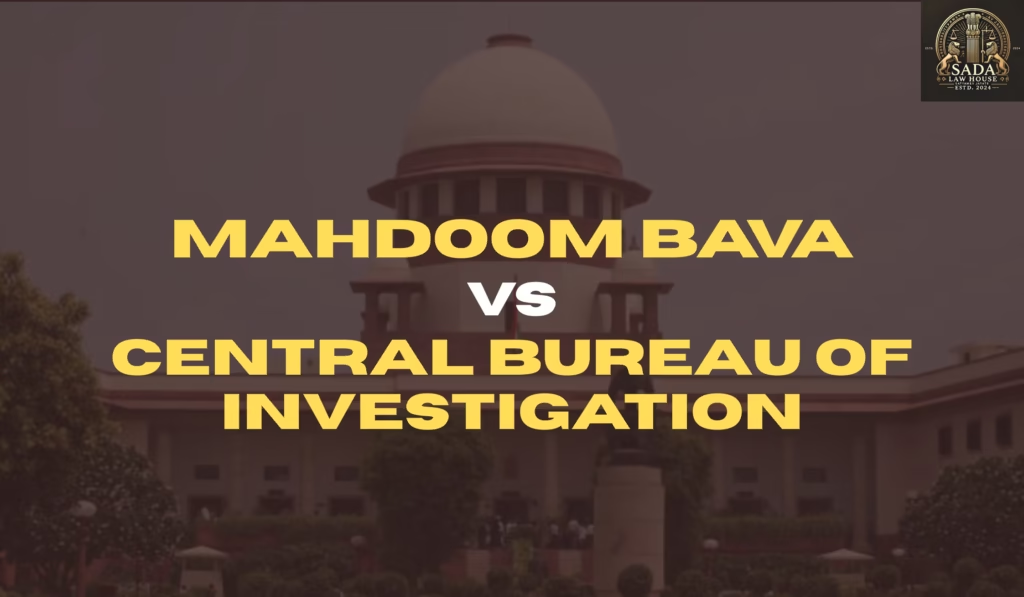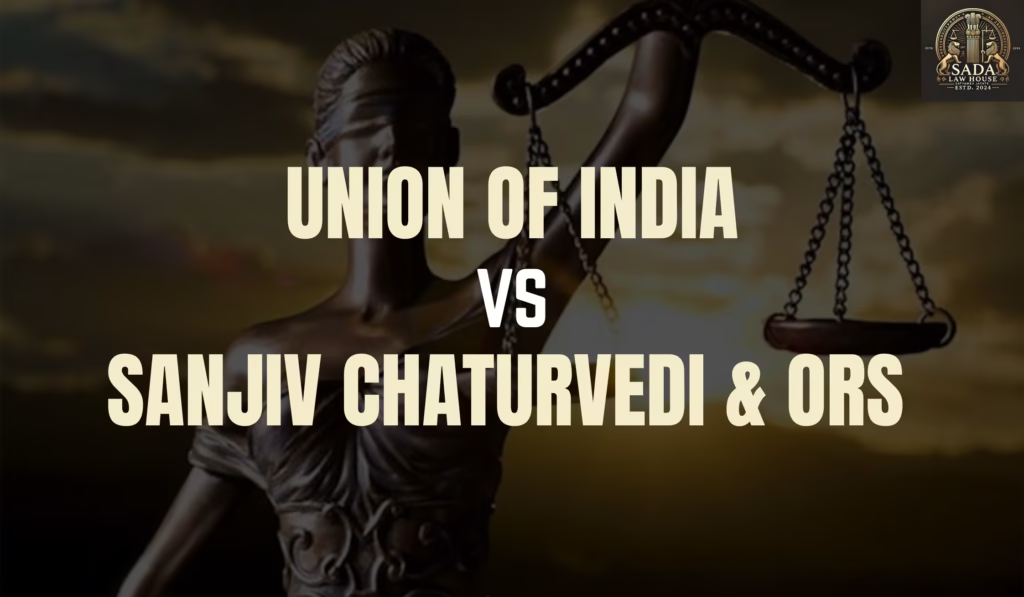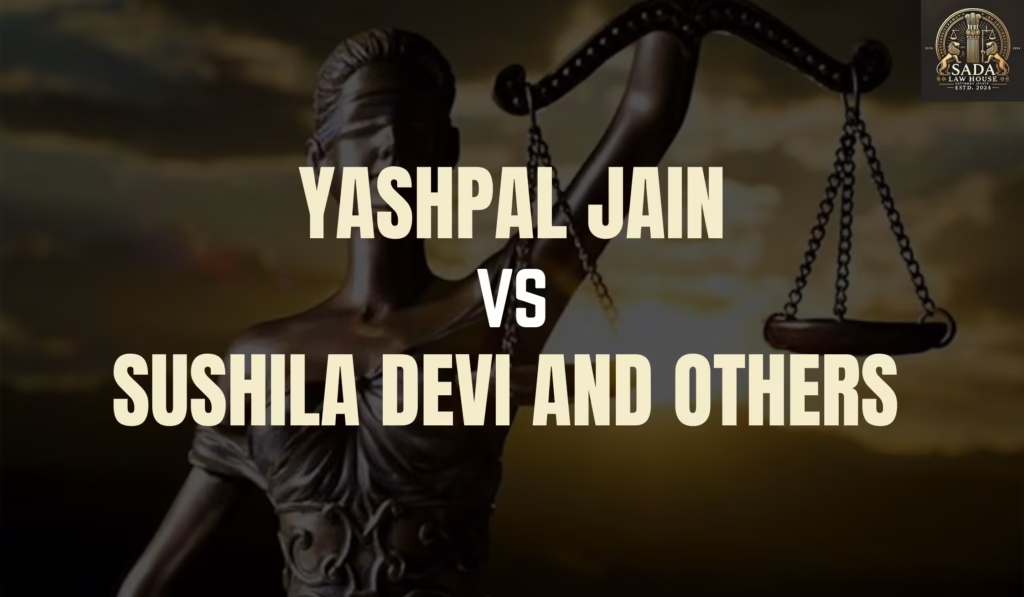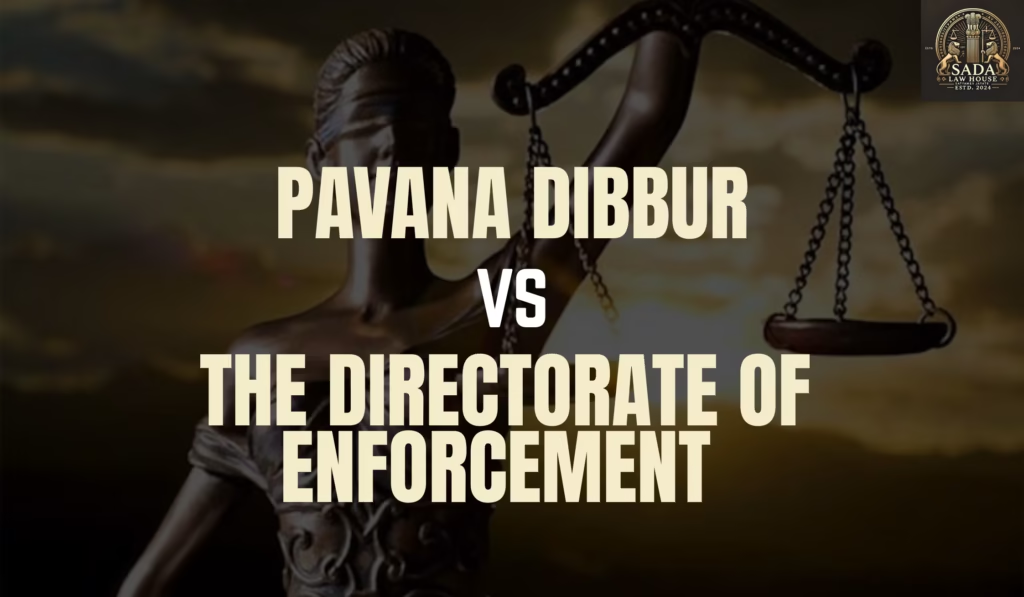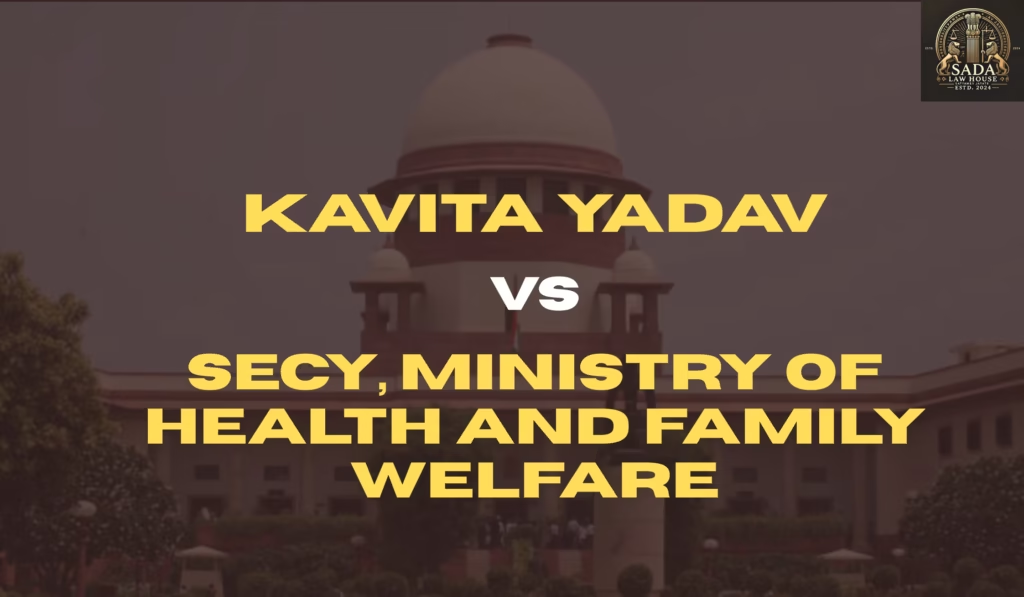Supreme Court Mandates “Support Persons” for Child Victims Under POCSO Act in Bachpan Bachao Case
Trending Today Mumbai EOW Arrests IPS Officer’s Husband in ₹7.2 Crore BMC Fraud Case Over Redevelopment Scam Nestlé India’s Bonus Share Proposal Reflects Confidence, Strong Governance, and Shareholder Commitment China’s Rare-Earth Export Curbs Disrupt Indian Industries: Push for Self-Reliance Gains Momentum Bihar’s Biggest Crackdown: ₹Crores in Properties Seized from 52 Criminals Under PMLA Madras High Court Halts ED Proceedings Against Film Producer, Cites Lack of Jurisdiction and Orders Return of Seized Items CLAT PG Candidate Challenges ₹30,000 Counselling Fee in Delhi High Court, Cites Financial Hardship Bombay High Court Pushes for Swift Resolution in Sony vs Tata Play Licensing Dispute Operation Thunder: How Nagpur is Leading India’s War Against Drugs with Tech and Community Power INTERNSHIP OPPORTUNITY AT LAWKARI LEGAL JOB OPPORTUNITY AT JURIDICA SOLUTION Supreme Court Mandates “Support Persons” for Child Victims Under POCSO Act in Bachpan Bachao Case REHA BHARGAV 11 June 2025 The Supreme Court of India’s 2023 judgment in Bachpan Bachao Andolan v. Union of India mandates the appointment of support persons for child victims under the POCSO Act, reinforcing the constitutional duty to protect children’s rights during legal proceedings. Introduction: Strengthening Child Protection Under the Law In a landmark judgment dated October 18, 2023, the Supreme Court of India in Bachpan Bachao Andolan v. Union of India took a significant step toward ensuring child-friendly legal proceedings under the Protection of Children from Sexual Offences (POCSO) Act, 2012. The ruling emphasized the mandatory role of “support persons” to assist and protect child victims of sexual abuse throughout the legal process. By reinforcing the constitutional and statutory obligations of the State, the Court aimed to prevent further trauma to vulnerable child victims and ensure justice is accessible, empathetic, and child-centric. Case Background: Bachpan Bachao’s Fight for Children’s Rights The petitioner, Bachpan Bachao Andolan, a prominent child rights NGO, filed the petition to address serious gaps in the implementation of the POCSO Act—specifically the underuse of support persons as outlined in the POCSO Rules, 2020. A 2019 Supreme Court Registrar report revealed that support persons were appointed in only 4% of POCSO cases, highlighting a concerning lack of structured support for child victims. A particularly shocking case from Lalitpur, Uttar Pradesh, involving the alleged gang rape of a 13-year-old girl, prompted urgent judicial intervention. Key Legal Issue Is the Appointment of Support Persons a Legal Obligation? The primary legal issue before the Court was whether the State is constitutionally and statutorily obligated to provide a support person for child victims during the investigation and trial process under the POCSO Act, and what mechanisms must be put in place to ensure uniform enforcement. Arguments Presented Petitioner’s View (Bachpan Bachao Andolan) The petitioner argued that Section 39 of the POCSO Act requires the mandatory appointment of support persons for child victims. They emphasized that leaving the appointment to the discretion of parents or guardians undermines the purpose of the Act. Lack of uniform implementation leads to revictimization and emotional trauma for children navigating the legal system. Support persons play a critical role in offering psychological, emotional, and logistical support to the child. Respondent’s View (Union of India & State of Uttar Pradesh) The respondents agreed on the importance of support but claimed the appointment should be discretionary, based on guardian consent. They cited administrative challenges such as lack of trained personnel, remuneration issues, and infrastructure limitations. Concerns were also raised about potential privacy breaches and the risk of misuse of the support person’s role. Judgment Summary: A Mandate for Child Justice Supreme Court’s Verdict on October 18, 2023 The Supreme Court ruled that the appointment of support persons is not optional, but a constitutional duty of the State. The Court underscored that this duty stems from the need to ensure a fair trial, emotional support, and dignity for child victims. Key Directives Issued: The National Commission for Protection of Child Rights (NCPCR) must draft model guidelines for the appointment, training, and remuneration of support persons. These guidelines must be implemented uniformly across all States and Union Territories. Authorities must inform parents or guardians about the availability and rights associated with support persons. Impact of the Judgment: Toward a Child-Centric Legal System This landmark ruling strengthens child rights under the POCSO Act, ensuring that support persons become a standard practice in cases involving minors. The judgment aims to: Prevent secondary trauma for victims during legal proceedings. Promote a child-friendly and sensitive judicial environment. Reinforce that child protection is a legal obligation, not a policy choice. Conclusion: A Milestone for Child Welfare in India The 2023 Supreme Court judgment in Bachpan Bachao Andolan v. Union of India marks a crucial step in making India’s criminal justice system more supportive and humane for child victims. By mandating the appointment of support persons under the POCSO Act, the Court has reaffirmed that protecting children’s dignity and rights is not just desirable—it’s constitutionally essential. Leave a Reply Cancel Reply Logged in as Sadalaw. Edit your profile. Log out? Required fields are marked * Message* Case Laws K Umadevi vs Government of Tamil Nadu 2025: Supreme Court Recognizes Maternity Leave as Fundamental Reproductive Right Sada Law • June 20, 2025 • Case law • No Comments Supreme Court Judgment on Affinity Test in Scheduled Tribe Verification: Affinity Test Not Mandatory for ST Claims Sada Law • June 20, 2025 • Case law • No Comments Supreme Court Grants Bail Despite NDPS Act Section 37: Upholds Article 21 in Mohd. Muslim v. State (NCT of Delhi) Sada Law • June 20, 2025 • Case law • No Comments 1 2 3 … 5 Next »

